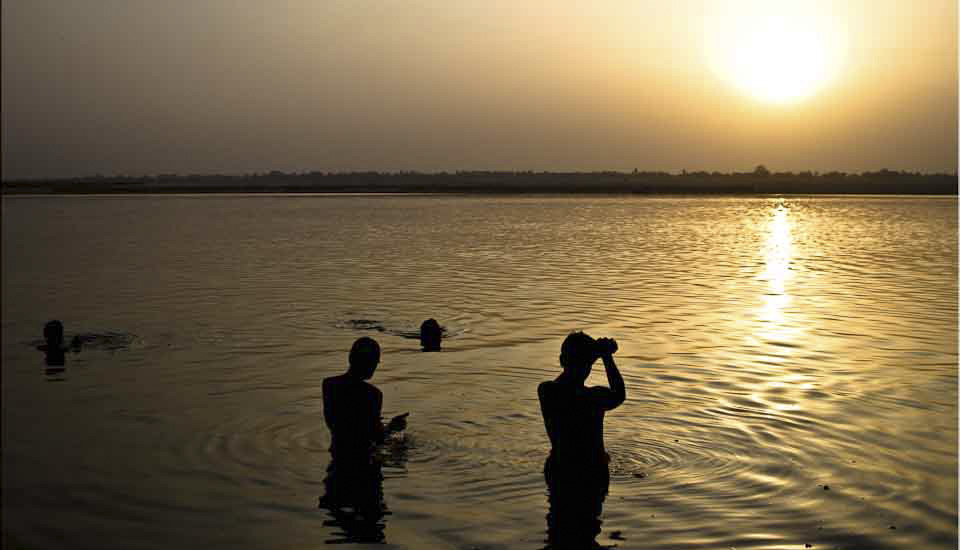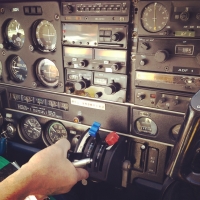.jpg)
Collecting Wood Chips
On the long wharf, privately owned by Allied Natural Wood Exports, a freighter fills its belly with controversial wood chips.
The little Port of Eden, near where I live in Far South New South Wales (NSW), is a busy working seaport.
Situated on Twofold Bay, halfway between Sydney and Melbourne, it is one of the deepest natural harbours in the Southern Hemisphere. This makes it ideal for large vessels – including the Royal Australian Navy ships who regularly pull into their designated wharf while on maneuvers or to access the nearby land-based munitions store. The port hosts an Australian Border Force office, and services the occasional import and export vessels, with the principal export being timber products – including wood chips from the local factory. It has long been home to a small fishing fleet.
Today, tourism is a growing business.
Every year, principally in October and November, thousands of humpback whale migrate close to the Eden coastline as they make their way south to feeding grounds in Antarctica. Many are females, with new calves born in the warmer waters further north. For several months, whale watching trips can advertise ‘guaranteed sightings’ of these magnificent creatures.
An expanded dock in Eden has seen a growth in the number of cruise ships stopping in town, with 41 of them stopping during the 2023/24 season. Smaller operators take tourists on fishing charters or whale watching trips. A number of pleasure boats and recreational fishing vessels make their home here, and it is a welcome refuge for long-distance yachts in inclement weather.
To keep a listening watch over the many vessels on the waters here, Marine Rescue NSW operates a Search and Rescue Centre (SARC) in Eden – and it was as a volunteer with that organisation that I was invited onto an October whale-watching cruise on the Cat Balou catamaran. The vessel and her company have changed owners since, but they are still whale-watching along the Sapphire Coast.
This was not my first trip out on that catamarin (see: Watching Water and Watching Water 2), and I had learned that seeing a whale was a bit like the blind men and the elephant: you might see a blow, or a hump, or a tail, but you were unlikely to see the whole animal!
Still, I love being on the water, so I jumped at the offer. We were still in the grips of Covid-19 restrictions, which meant reduced passenger numbers on the boat, making it even more special.
On a photographic note: my brain was on a go-slow, and I lost a lot of pictures because I didn’t set my camera speed to compensate for the motion of the vessel on the water. Oh well!
I hope you enjoy what I salvaged:
.jpg)
Leaving Twofold Bay
Twofold Bay was named by English explorer and naval surgeon George Bass (1771 –1803) for its two bights. A range of working vessels berth here in Eden Harbour.
.jpg)
Tugboats in Snug Cove
With large ships visiting regularly, two tugs sit at the ready in the harbour.

Pelicans in Snug Cove
Where there are fishing boats – and fish – there are bound to be gulls and pelicans.

Australian Pelican – Pelecanus Conspicillatus
Australian pelicans are large water birds – although they are only medium-sized by pelican standards. They have the longest bill of any living bird.

Cat Balou
There is plenty of room on the deck of the catamaran to move around.

Ship on the Navy Dock
It is a busy day on the water. A large freighter is moored here on the Navy Wharf; in the distance, another freighter takes on a load of wood chips at the private pier.

Workers on a Visiting Ship
We pull along side, and I can watch the seamen who look tiny on the decks. I couldn’t distinguish their language, but a lot of the seafarers on these freighters are from the Philippines.

Red Rocks on East Boyd Bay
This coast is known for its sapphire blue waters, white beaches, and red rocks coloured by iron oxide.

Cormorants on the Marker
Great cormorants (Phalacrocorax carbo) are one of three types we see regularly around this coast.

Private Wharf
Timber exports are still a big part of the local economy. The bush fires of 2019-20 raged through here in early January 2020: a pile of woodchips from the mill ended up burning for days. Blackened tree trunks are still visible from the water.

Boyd’s Tower
The square tower on Red Point was built from Pyrmont (Sydney) sandstone in 1847 by Scottish entrepreneur Benjamin Boyd. The January 2020 fires razed the bush here; although the ground is greening up, the trees are still skeletons.

South of Red Point
We round the aptly-named Red Point. The commanding twenty-three metre (75 ft) Boyd’s Tower was intended as a private lighthouse, but was only ever used as a lookout in the days of Eden’s whale hunting.

Whale Tail
The eagle eyes of our captain have spotted a whale.

Dolphin Abstract
A school of dolphins play with the boat. We get bottlenose and common dolphins around here, but with the distortion from the waters, I have no idea which these are.

Humpback Back
As I said earlier, the shape and enormous size of a humpback is impossible to discern from the bits that make it above the water.

Dolphin
The dolphins are a joy to watch as they bullet past the boat.

Splash!
Clearly, the whales are breaching the water – just not where we can see them properly! That is Mount Imlay in the background, rising up from the landscape.

Another Whale Tail
Closer to the vessel, the best we can spot are tail-slaps …

White Fluke
… and the flash of a tail’s underside as the giant mammal does a deep-dive and disappears.

A Suggestion of Dolphins

The Captain’s Chair

Australasian Gannet – Morus Serrator
Given how uncooperative the whales and dolphins had been …

Morus Serrator – Australasian Gannet
… I was thrilled to capture some local bird-life!

White-Bellied Sea-Eagle – Haliaeetus Leucogaster
The eagle was much further away, but I love watching them against the sky.
It was a lovely morning on the water.
One day, I’ll be there when the whales breach!

Until then,
Safe Sailing
Pictures: 02October2020




























.jpg)

